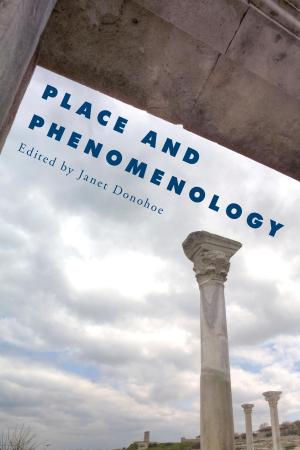Arendt, Levinas and a Politics of Relationality
Nonfiction, Religion & Spirituality, Philosophy, Phenomenology, Political, Ethics & Moral Philosophy| Author: | Anya Topolski | ISBN: | 9781783483433 |
| Publisher: | Rowman & Littlefield International | Publication: | May 21, 2015 |
| Imprint: | Rowman & Littlefield International | Language: | English |
| Author: | Anya Topolski |
| ISBN: | 9781783483433 |
| Publisher: | Rowman & Littlefield International |
| Publication: | May 21, 2015 |
| Imprint: | Rowman & Littlefield International |
| Language: | English |
Born in Eastern Europe, educated in the West under the guidance of Martin Heidegger and the phenomenological tradition, and forced to flee during the Holocaust because of their Jewish identity, it should come as no surprise that Emmanuel Levinas and Hannah Arendt’s ideas intersect in an important way. This book demonstrates for the first time the significance of a dialogue between Levinas’ ethics of alterity and Arendt’s politics of plurality.
Anya Topolski brings their respective projects into dialogue by means of the notion of relationality, a concept inspired by the Judaic tradition that is prominent in both thinker’s work. The book explores questions relating to the relationship between ethics and politics, the Judaic contribution to rethinking the meaning of the political after the Shoah, and the role of relationality and responsibility for politics. The result is an alternative conception of the political based on the ideas of plurality and alterity that aims to be relational, inclusive, and empowering.
Born in Eastern Europe, educated in the West under the guidance of Martin Heidegger and the phenomenological tradition, and forced to flee during the Holocaust because of their Jewish identity, it should come as no surprise that Emmanuel Levinas and Hannah Arendt’s ideas intersect in an important way. This book demonstrates for the first time the significance of a dialogue between Levinas’ ethics of alterity and Arendt’s politics of plurality.
Anya Topolski brings their respective projects into dialogue by means of the notion of relationality, a concept inspired by the Judaic tradition that is prominent in both thinker’s work. The book explores questions relating to the relationship between ethics and politics, the Judaic contribution to rethinking the meaning of the political after the Shoah, and the role of relationality and responsibility for politics. The result is an alternative conception of the political based on the ideas of plurality and alterity that aims to be relational, inclusive, and empowering.















